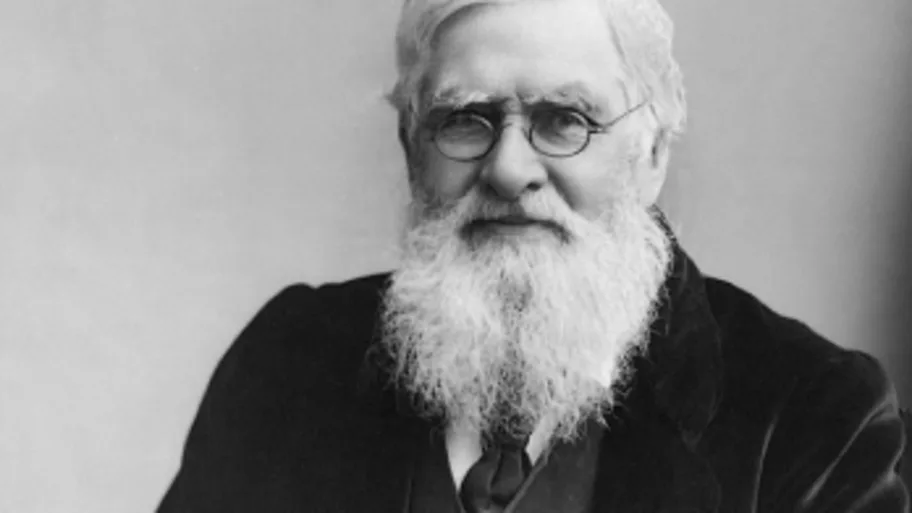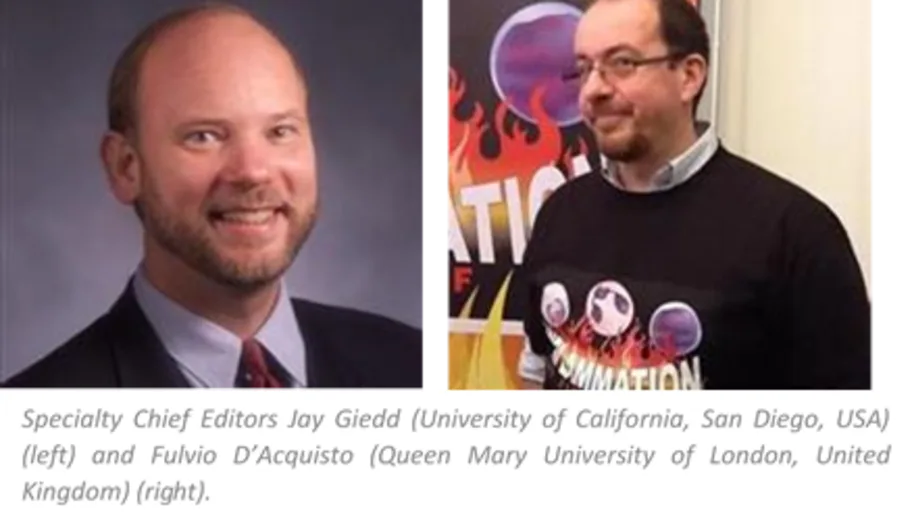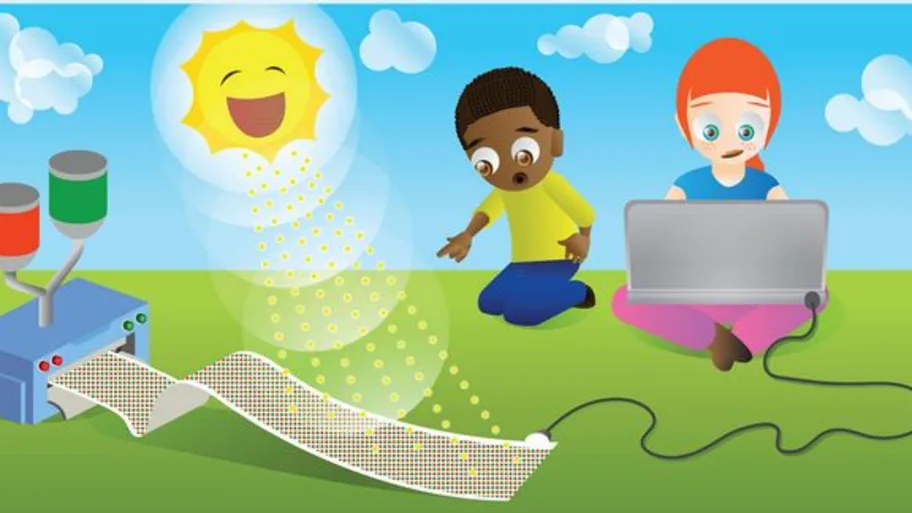
- Science news
- Young Minds
- Celebrating the Importance of Evolution
Celebrating the Importance of Evolution

HMS Beagle by Dorothy Alison Gottschamer, Tübingen, Germany. Age: 9
Frontiers for Young Minds celebrates Darwin Day by learning why this day is important for us all, and what we can do on this day that celebrates the importance of evolution and how it is taught!
-- By Faith Frings (USF Integrative Biology), Alex Levine (USF Philosophy), Lorena Madrigal (USF Anthropology), Larry Plank (Executive Director for Science Hillsborough County Schools), and Christina Richards (USF Integrative Biology)
Today is Darwin Day! Darwin Day is a worldwide celebration of Charles Darwin’s birthday to commemorate Darwin’s contributions to science. People all over the globe host events promoting science education, attend evolution exhibitions in museums, and hold celebrations honoring the esteemed scientist. Although Charles Darwin wasn’t the first person to develop a theory of evolution, he has become associated with our understanding of the evolutionary process. One of his most famous contributions was as a naturalist sailing around the world on the HMS Beagle between 1831 and 1836, and in particular his work describing the organisms of the Galapagos Islands on that trip.

The voyage of the HMS Beagle (image credit https://www.britannica.com/biography/Charles-Darwin#/media/1/151902/210201)
Darwin Day is particularly important in the United States because the US has among the lowest rates of acceptance of the concepts of evolution (Miller et al., 2006), partly because of inconsistent science standards in public education in the US. In the State of Florida in particular, there has historically been a lack of appreciation of evolution, and only in 2008 were science standards revised to include the teaching of “Diversity and Evolution of Organisms” (Florida Department of Education, 2008). However, many teachers are still uncomfortable with the material (Fowler and Meisels, 2010).
Darwin Day is one of the few days dedicated to outreach by scientists to the general public. The barriers to understanding and acceptance of evolution indicate a lack of trust in science and a lack of scientific training and critical thinking. This lack of understanding is at the heart of our difficulty in confronting such important social matters as antibiotic resistance, climate change and vaccinations. An important mission of Darwin Day is that professional scientists find creative ways to counter the misconceptions of how science works and remind people of how the advances of modern society depend on scientific methods.
At the University of South Florida in Tampa, we have worked with Mr. Larry Plank, the Executive for Science in the Hillsborough County Public Schools, to develop a series of lectures, workshops, hands-on participatory activities, and dialogue between students, teachers, USF professors and leading national speakers (see https://ecologicalepigenetics.com/usf-darwin-day). Our cross-disciplinary Darwin Day Team includes researchers from USF Departments of Anthropology, Geology, History, Integrative Biology and Philosophy, the College of Education, the Center for Scientific Literacy and the Humanities Institute. In 2020, we also partnered with the nearby Moffitt Cancer Center and their researchers interested in the Ecology and Evolution of Cancer. Our approach has been to emphasize how evolutionary concepts permeate a wide variety of disciplines, but also to cultivate an opportunity for graduate students to interact with local high school students and to gain valuable leadership and teaching experience. At the same time, the high school students gain exposure to cutting-edge evolutionary concepts from a variety of perspectives. Public school science teachers benefit by participating in teaching workshops to enhance their abilities and broaden their awareness. The general public is invited to attend all lectures, held at different venues to further enable broad participation and dissemination.
Overall, evolution is a powerful concept that connects multiple scientific fields from molecular genetics to anthropology, leading to advances in medicine and public policy, and solutions to environmental crises (Lombrozo et al, 2008; National Research Council, 2012). Improving evolution education can increase students’ critical thinking skills and can be applied to make future discoveries in multiple scientific fields. To learn more about how students process different evolutionary concepts, research is being conducted at USF with a focus on analyzing the ability of undergraduate students to interpret different phylogenetic trees. Darwin Day gives us the opportunity to reflect on the important applications of evolutionary theory and to start taking steps to improve evolution education.
How you can get involved

Our USF Darwin Day 2021 seminar. Poster design by USF IB PhD candidate Jeannie Mounger
Since 2003, the International Darwin Day Celebration website (https://darwinday.org/history/) has provided information to help connect people of all ages around the world. Their goal is to encourage existing institutions worldwide to celebrate the understanding and appreciation of science every year. You can support them and keep up to date with local events by checking out their web pages: https://darwinday.org/action/.
This year due to the coronavirus, many Darwin Day events have been transformed into virtual events. Professor Lorena Madrigal, from the Department of Anthropology at USF, will present our Darwin Day seminar on “Human genetic diversity from an evolutionary perspective” by zoom. In this way, we will still be able to reach our teachers and students in Hillsborough County virtually. It will not be the full spectrum of normal events but will keep us in touch.
The National Center for Science Education (https://ncse.ngo/) offers additional resources. Their mission is to “promote and defend accurate and effective science education because everyone deserves to engage with the evidence”. They support teachers, communities, and actively blocking threats to science education. Evolutionary ideas permeate so many aspects of scientific research, and there are many ways to explore these ideas with researchers that span from cancer biology to understanding invasive species and the make-up of natural communities. Citizen science programs are starting all over the world, where non-scientists – including kids – can take measurements of organisms and report their findings back to scientists. You can find out about some of these here: https://en.wikipedia.org/wiki/List_of_citizen_science_projects.
Want to read more?
Evolution provides an important framework for our understanding of the diversity of life. The concepts of evolution are therefore relevant in many Frontiers collections! From understanding biodiversity (https://kids.frontiersin.org/article/10.3389/frym.2017.00031; https://kids.frontiersin.org/article/10.3389/frym.2019.00078; https://kids.frontiersin.org/collection/11796/soil-biodiversity; https://kids.frontiersin.org/article/10.3389/frym.2019.00135) to understanding our own evolutionary history (https://kids.frontiersin.org/article/10.3389/frym.2019.00104; https://kids.frontiersin.org/article/10.3389/frym.2020.555342; https://kids.frontiersin.org/article/10.3389/frym.2020.550299; https://kids.frontiersin.org/article/10.3389/frym.2016.00003), you can read about what scientists across a diversity of disciplines are working on right now.
References
Florida Department of Education. (2008). Florida Sunshine State Standards. Available online at http://www.fldoestem.org/Uploads/1/docs/Science%20 Standards%20Both-FINAL%203-20-08.pd
Lombrozo, T., Thanukos, A., & Weisberg, M. (2008). The importance of understanding the nature of science for accepting evolution. Evolution: Education and Outreach, 1(3), 290-298.
Fowler, S. R., and Meisels, G. G. (2010). Florida teachers’ attitudes about teaching evolution. Am. Biol. Teach. 72, 96–99. doi:10.1525/abt.2010.72.2.8.
Miller, J. D., Scott, E. C., and Okamoto, S. (2006). Science communication. Public acceptance of evolution. Science 313, 765–766. doi:10.1126/science.1126746.
National Research Council, Thinking evolutionarily: evolution education across the life sciences: summary of a convocation (National Academies Press, Washington, DC, 2012).






